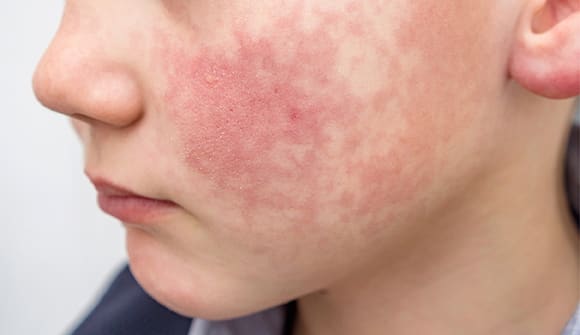A ‘health emergency’ in Florida
Outbreak of hepatitis A in the state may be partly related to unwashed fruits and veggies.
Article Author: Vikki Mioduszewski
Article Date:

Hepatitis A cases are growing in our state and the Florida Department of Health (FDOH) has declared the epidemic a “health emergency.” Since Jan. 1, 2019, there have been more than 2,904 cases of this serious liver infection reported in the state, more than five times the number of cases reported in 2018. The FDOH said that 80% of those with hepatitis A have been hospitalized, and there have been more than 30 deaths in Florida alone.
The three counties with the highest volume of cases (Jan. 1, 2019-Oct. 5, 2019) are Pasco (397), Pinellas (369) and nearby Volusia, which has already had 244 reported cases this year. The outbreak is so serious that county health departments (CHDs) across the state are offering free hepatitis A vaccinations to high-risk groups in the state.
What is hepatitis A?
Hepatitis is a highly contagious viral liver infection that can cause mild to severe illness. While B and C are most often spread when the blood of an infected person enters the body of someone who is not infected, hepatitis A is spread when a person ingests fecal matter, even in microscopic amounts.
Many people associate hepatitis A with people who use drugs, those who are experiencing homelessness and men who have sex with men. However, Mobeen Rathore, MD, chief of pediatric infectious disease and immunology for Wolfson Children’s Hospital, said there are other ways people can get the infection and everyone’s at risk, including children.
“We believe the hepatitis A outbreak we’re seeing in Florida and around the country may be due, in part, to unwashed fruits and vegetables,” he said. Shellfish, ice, and water also are common sources of the disease.
Who should get the vaccine?
According to Dr. Rathore, hepatitis A is often much more severe in adults than in children. “However, the hepatitis A vaccine is recommended for all children at one year of age so that they don’t get the infection later in life and become more seriously ill with conditions such as serious liver disease,” he added. “This vaccine also protects against outbreaks like the one we are experiencing in Florida. Because of the hygiene habits of children, this virus could potentially spread quickly through schools and daycare centers.”
Children should get their first dose of the hepatitis A vaccine, along with other CDC-recommended immunizations such as MMR (which protects against measles, mumps and rubella) and varicella (which protects against the virus that causes chickenpox), at 12 months of age. The second dose should be administered 6-18 months after the first.
Dr. Rathore said adults should talk to their health care provider about whether they are a high risk for hepatitis A or B and if they need the vaccine. “If you are immunocompromised or have liver disease of any kind, you should be vaccinated against hepatitis A and B to prevent severe liver damage,” he recommended. “And always practice good hand hygiene, especially after using the bathroom, changing diapers, and before preparing or eating food."
Sources: Florida Department of Health



